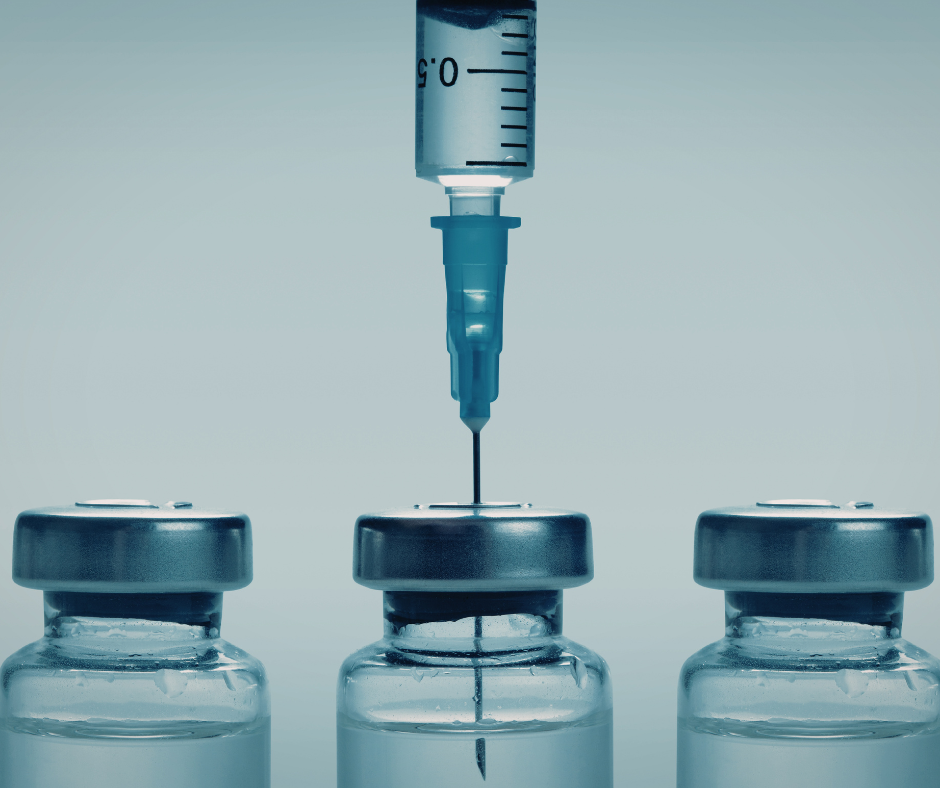Everyone has experienced feelings of nervousness, sadness, and apprehension. Some people may even struggle with anxiety or depression at some point in their life. Sometimes fluctuating hormones can be indicators of what’s going on inside our bodies, and not just our minds. Hormones play a significant role in our mood, wellbeing, and mental state. They affect both men and women, but women are more likely to have extreme effects due to their menstrual cycle and varying levels of progesterone and estrogen throughout each month.
The good news is that hormone levels can be checked through lab work, and can be balanced naturally! Hormones are chemicals within the body produced by the endocrine system to control major bodily processes. They regulate your metabolism, growth rate, and your ability to cope with stress. With proper nutrition, vitamins and lifestyle changes, you can balance your hormone levels and lessen some of the unwanted physical and mental symptoms of hormonal imbalance.

Why do hormonal imbalances occur?
Hormones can become imbalanced for many reasons. In women, puberty, pregnancy, and menopause can impact hormone levels greatly. Other factors such as inadequate nutrition, stress, and environmental toxins can cause disruptions as well. A hormonal imbalance means that your body is making too much or too little of some hormones or is unable to properly utilize the hormones made. Even the smallest shifts in levels can cause big problems in the future. To prevent these imbalances from occurring, it’s important to know the root causes of them.
How do vitamins work to balance hormone levels?
Vitamins can make a noteworthy difference in hormone levels and support healthy hormone production in the body. The endocrine glands require key micronutrients to create hormones and support them in carrying out their particular functions. Deficiencies in these essential nutrients (vitamins) can cause major problems in your daily life.
The best vitamins to support hormone health:
Magnesium
Magnesium is an essential mineral for your hormone levels. The vitamin is used to treat hormone conditions such as PMS, PCOS, thyroid conditions, perimenopause, anxiety, and adrenal fatigue. Many women are deficient in magnesium because our bodies get rid of it when we experience a lot of stress. Magnesium is found in the foods we eat, but can also be taken as a supplement. Some ways in which magnesium works to regulate your hormone cycle include:
- Cortisol regulation. Magnesium works to balance stress hormone production, and relieve the body of any unnecessary stress-like symptoms.
- Blood sugar balance. Magnesium helps control blood sugar levels by regulating insulin action.
- Thyroid support. Magnesium boosts the conversion of T4 thyroid hormones to more active T3 hormones.
- Sleep aid. Magnesium has been found to play a role in muscle and nerve function. The mineral aids in muscle relaxation and promotes better sleep.
- Hormone creation. Magnesium helps balance the body’s main sex hormones (estrogen, progesterone, and testosterone) by helping the liver metabolize hormones and filter harmful estrogen metabolites.
Vitamin K2
Vitamin K2 has an important relationship with estrogen and bone health. During menopause, estrogen and bone density decline, and postmenopausal women are often deficient in vitamin K2. Bone health may be improved in those experiencing menopause by restoring adequate vitamin K2 levels. In a number of areas, vitamin K2 acts in the bone loss pathway specific to the loss caused by low estrogen levels.
Zinc
Zinc is a vital mineral that affects both hormone health and overall well-being. It helps create and balance hormones like testosterone and estrogen, which are important for reproductive functions in men and women. Zinc also boosts the immune system, helps cells grow, and heals wounds. If you don’t get enough zinc, it can lead to hormonal imbalances, low sex drive, and weak immune responses. Zinc can be found in foods like meat, nuts, and seeds. If you are vegan, vegetarian or don’t eat enough meat, zinc is crucial to supplement with because you won’t get enough of this nutrient from your diet alone.
Vitamin D
Vitamin D is a hormone precursor. It’s used by the body to make calcitriol, a potent hormone that signals various genes to express or suppress themselves, including those that affect endocrine function and hormonal imbalance. Vitamin D has been linked to estrogen levels. Low levels of vitamin D may lead to low levels of estrogen which can cause mood swings, depression, headaches, and more. You can increase vitamin D levels through sun exposure, though it’s difficult for most people to get adequate levels from the sun alone. Taking a vitamin D supplement is the most effective way to boost your levels.
Selenium
Selenium supports your thyroid health. Thyroid health is important because your thyroid gland controls crucial aspects of your health like metabolism and hormone levels. Selenium helps the thyroid work properly by converting inactive hormones into active ones, which affects your energy, mood, and weight. It also protects the thyroid from damage. To keep your hormones and thyroid in good shape, make sure to include selenium-rich foods like Brazil nuts, fish, and poultry in your diet. This way, you can maintain a healthy balance and support your overall well-being.
Iodine
Along with Selenium, another important nutrient for thyroid balance is iodine. The thyroid gland relies on iodine to produce thyroid hormones, which control your metabolism, energy levels, and overall hormone balance. Without enough iodine, the thyroid can’t make sufficient hormones, leading to potential issues like fatigue, weight gain, and hormone imbalances. Ensuring adequate iodine intake through iodized salt or iodine-rich foods like seafood and seaweed is essential to support a healthy thyroid and hormone function. A blood lab can show you where your iodine levels are. If they’re low, you may want to consider supplementing with iodine.
Vitamin C
Vitamin C has many benefits. The vitamin can increase progesterone levels which helps to prepare the uterine lining for pregnancy. Due to this, vitamin C increases fertility and the health of your eggs. Vitamin C also works to reduce stress and anxiety because of its effect on keeping your hormones balanced. Your body uses the vitamin to produce dopamine, norepinephrine and adrenaline during stressful situations.
B Vitamins
When you experience a hormonal imbalance, B vitamins support improved hormone production and healthy hormone levels throughout your body. Here are some beneficial B vitamins for your hormones:
Vitamin B12
This vitamin is needed for methylation, a process in the liver that breaks down excess hormones and waste. Without enough vitamin B12 in your body, methylation may no longer work properly which can lead to a buildup of homocysteine in the blood. This deficiency is known to cause fatigue, mood swings, inflammation and more. Vegetarians and vegans are at risk for this deficiency because vitamin B12 is commonly found in animal products.
Vitamin B6
This vitamin can help alleviate symptoms in those experiencing menopause or premenstrual syndrome (PMS). A deficiency in vitamin B6 is connected to hormonal imbalances in estrogen and progesterone.
Vitamin B3
This vitamin helps to produce both sex and stress (adrenal) hormones. It also improves circulation, suppresses inflammation and supports liver function by extracting harmful chemicals from the liver.
If you are feeling the unwanted effects of hormonal imbalance- you’re not alone! Schedule an appointment with an expert at Evolve Telemedicine today, and find out which vitamin supplements will work best for you. We’ve partnered with Fullscript, a supplement provider, to help get our patients the vitamins they need through delivery or in-office services. Through comprehensive lab work and testing, we can create an individualized treatment plan based on your own personal needs and goals!






